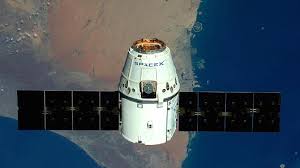
Breaking News
 How a 27-Year-Old Codebreaker Busted the Myth of Bitcoin's Anonymity
How a 27-Year-Old Codebreaker Busted the Myth of Bitcoin's Anonymity
 Old World Order is COLLAPSING: The Death of Europe and the Rise of China
Old World Order is COLLAPSING: The Death of Europe and the Rise of China
 Energy Secretary Expects Fusion to Power the World in 8-15 Years
Energy Secretary Expects Fusion to Power the World in 8-15 Years
 South Koreans Feel Betrayed Over Immigration Raid, Now Comes the Blowback
South Koreans Feel Betrayed Over Immigration Raid, Now Comes the Blowback
Top Tech News
 Tesla Megapack Keynote LIVE - TESLA is Making Transformers !!
Tesla Megapack Keynote LIVE - TESLA is Making Transformers !!
 Methylene chloride (CH2Cl?) and acetone (C?H?O) create a powerful paint remover...
Methylene chloride (CH2Cl?) and acetone (C?H?O) create a powerful paint remover...
 Engineer Builds His Own X-Ray After Hospital Charges Him $69K
Engineer Builds His Own X-Ray After Hospital Charges Him $69K
 Researchers create 2D nanomaterials with up to nine metals for extreme conditions
Researchers create 2D nanomaterials with up to nine metals for extreme conditions
 The Evolution of Electric Motors: From Bulky to Lightweight, Efficient Powerhouses
The Evolution of Electric Motors: From Bulky to Lightweight, Efficient Powerhouses
 3D-Printing 'Glue Gun' Can Repair Bone Fractures During Surgery Filling-in the Gaps Around..
3D-Printing 'Glue Gun' Can Repair Bone Fractures During Surgery Filling-in the Gaps Around..
 Kevlar-like EV battery material dissolves after use to recycle itself
Kevlar-like EV battery material dissolves after use to recycle itself
 Laser connects plane and satellite in breakthrough air-to-space link
Laser connects plane and satellite in breakthrough air-to-space link
 Lucid Motors' World-Leading Electric Powertrain Breakdown with Emad Dlala and Eric Bach
Lucid Motors' World-Leading Electric Powertrain Breakdown with Emad Dlala and Eric Bach
 Murder, UFOs & Antigravity Tech -- What's Really Happening at Huntsville, Alabama's Space Po
Murder, UFOs & Antigravity Tech -- What's Really Happening at Huntsville, Alabama's Space Po
SpaceX wants to launch 4,425 satellites into space to bring super-fast internet to the world

Elon Musk's SpaceX wants to launch thousands of satellites into space with the aim of providing super-fast global internet coverage, according to a regulatory filing.
Elon Musk's SpaceX wants to launch thousands of satellites into space with the aim of providing super-fast global internet coverage, according to a regulatory filing.
SpaceX – the company on a mission to colonize Mars – outlined plans to put 4,425 satellites into space in a Federal Communications Commission (FCC) filing from earlier this week.
That's three times the 1,419 satellites that are currently in space, according to the Union of Concerned Scientists, a not-for-profit group made up of scientists across the world.
Billionaire Musk – who is also the chief executive of electric car company Tesla – first announced plans for the project in 2015, with an estimated cost of around $10 billion. The FCC filing did not outline the financials of the project.



